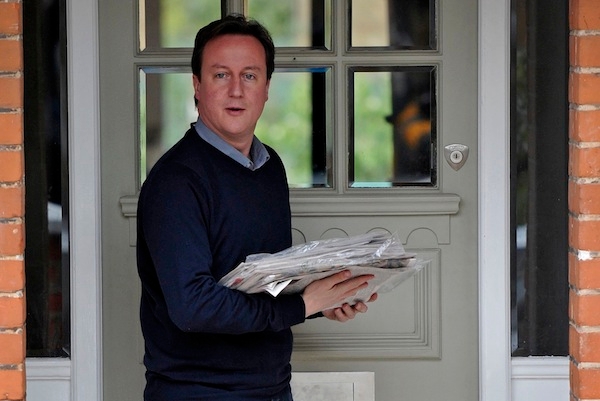One of the foundations on which David Cameron based his decision to reject statutory underpinning of press regulation was that editors would set up a new system based on Lord Justice Leveson’s recommendations which would prove far tougher than the Press Complaints Commission.
The failure of the industry to reach consensus on a new body – and this is a real risk given the refusal of some publications to join the PCC – would pull the rug from under the Prime Minister’s feet as he fights critics pushing for statute. Cameron is also facing claims that he is bowing to bullies in the press, and it is for these two reasons that the Prime Minister will be applying great pressure on editors as they meet Culture Secretary Maria Miller this week. He must make clear that he is opposing statute because he believes a properly powerful regulator would address the problems that the criminal law does not, and allow victims to take up grievances on issues such as libel where they would not be able to afford court action, rather than because he is afraid of the media lobby. And he needs to be seen to be tough on the newspaper industry, rather than its faithful friend.
The Prime Minister will make an appearance at that meeting between his minister and editors on Tuesday. The Financial Times quotes one of his aides saying:
The PM doesn’t want to legislate but he thinks the onus is on the industry to act pretty sharpish. We have had a lot of indications that the industry is prepared to take it very seriously.
Boris Johnson underlines the importance to editors of taking the Leveson report seriously in his Telegraph column this morning. The Mayor of London, who has made his own opposition to statutory underpinning clear, writes:
‘David Cameron’s analysis last week was entirely correct. He has thrown the papers a lifeline, and they need to grab it tight. We want a vital and exuberant media that reports the foibles of the rulers, without fear or favour but also without lying and cheating and cruelty.’
Boris, like Fraser, believes that some of the unacceptable behaviour in recent years has been sparked by despair at circulations in free fall, and rather optimistically argues that ‘if the papers get it right, and act fast, they can rebuild trust, and they may also be able to rebuild some of that lost circulation’.
But Labour won’t wait for the newspapers to prove themselves: instead the party is commissioning its own draft legislation which would back up the new newspaper regulator in statute – something Matt d’Ancona predicted would happen in his column yesterday. I reported on Friday that the party was concerned that the government’s own draft bill would be a deliberate attempt to confuse the legislation, given advisers have widely briefed that it is being drawn up to prove that statutory underpinning is impracticable. Fortunately for the Prime Minister, there will be no vote at the end of the debate on Leveson in the Commons this afternoon. This at least gives him time to work with the newspaper industry to make the case, not for the status quo, which he has explicitly rejected, but for a new independent regulator free from government involvement.







Comments